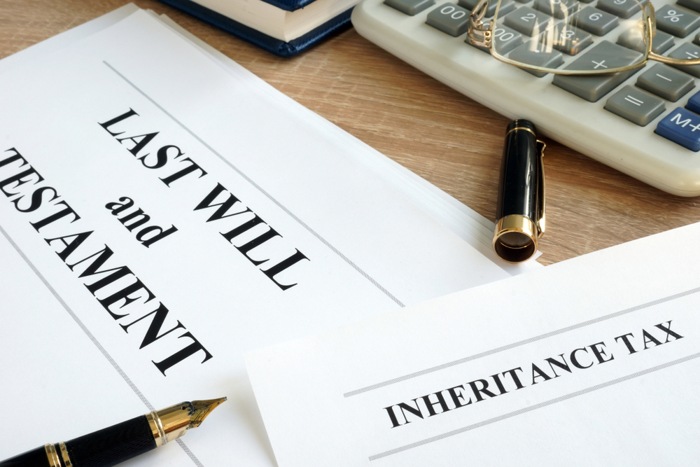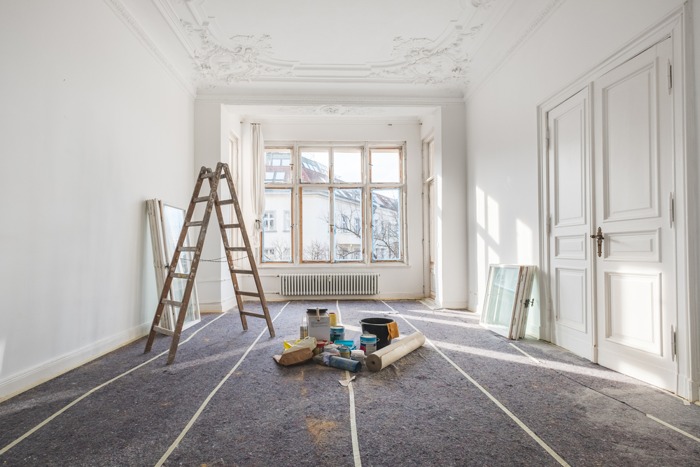
Inheriting a property after death can be a confusing and distressing time for many. In our guide, the housing support team at FastHomes.org aim to answer the common initial questions asked by those who have inherited, to ease the process during this difficult time. However, it is worth considering gaining professional advice to fully understand about the options most suited to you.
First things first, you may be wondering, “do I have to pay taxes on an inheritance property?” The short answer is yes. But the good news is that the property doesn’t have to be dealt with immediately, and most banks or lenders are sympathetic. They understand that following the death of a loved one, having to think about taxation, debt, property and money is the last thing on your mind. Inheritance tax doesn’t have to be paid up to 12 months and mortgage lenders have a period of grace whilst you make arrangements, in order to make the process as simple and pain-free as possible.
Typically, a will names a person to oversee the distribution or the sale of the inherited property. This person is either a solicitor, child, sibling, family member or friend. This person is responsible for ensuring the payment of taxes, clearing any debts and distributing the estate (if stated in the will). If there is no will, living spouse or civil partner, the entitlement falls to children of the deceased.
When doing this, it is important to ensure all paperwork is in check. Even if the inheritors are family members, it’s worth hiring a lawyer to ensure everything is done professionally. Even if you get on well and trust each other, disputes over inheritance can cause major issues among families, so make sure everything is noted down in writing.
This is the perfect opportunity to begin the process of buying someone out of an inherited house if they do not wish to be involved.
Check to find out whether the property has a mortgage because as the inheritor, you will have to continue making the mortgage payments, unless you are choosing to sell the property. However, if you choose to keep the inherited property, you should register the property in your name. This can be done through a solicitor as part of the probate process.
 Photo credit: Daniel Jedzura / Shutterstock
Photo credit: Daniel Jedzura / Shutterstock
A probate is the process that confirms the will and allows the inheritance of a house after death to the beneficiaries – this begins the transfer of inherited property from one person to another. In cases where there is no will, or the will is contested, it can be a more complicated process and it may take much longer than usual.
Typically, a grant of probate takes within 6 to 8 weeks to arrive, and the finalised issues of inheritance and the property can take anywhere from 3 to 6 months – sometimes longer. When trying to sell the inherited property, it may feel like a lifetime. But if you make the property look appealing, there’s no reason it won’t sell quickly.
It’s worth noting that you may need to take out ‘vacant property insurance’ if the property is empty for more than 30 days.
There are three types of tax on an inherited property you may have to pay. These include inheritance tax, income tax and capital gains tax. Read on to find out more about what these taxes entail:
Inheritance tax, otherwise known as “death tax” in the UK, is tax you pay on anything you have inherited after the death of a loved one. For instance, if the combined worth of the inherited property and assets is more than £325,000, you will not have to pay inheritance tax on anything you inherit, including a house.
However, if the value of the property is above this amount, you may have to pay tax on the part of the property that is above this, at a rate of 40%. For example:
If the property is £500,000 and your tax-free threshold is £325,000, the inheritance tax charged will be £500,000 minus £325,000 – £175,000.
However, if 10% or more of the property is left to charity in the deceased’s will, you can pay inheritance tax at a reduced rate of 36%.
An additional allowance – known as the Residence Nil-Rate Band (RNRB) – further reduces the inheritance tax charge against a home. To find out more about this, visit the Gov.uk website.
If you choose to rent the property, this is the tax you pay on the rental income. The profit from the rent is added to your salary and can increase the amount of tax you pay. Bear in mind that only the profit is taxed – this is the income minus mortgage payments and expenses, including wear and tear on furnished properties.
If you plan on selling an inherited house and it has increased in value since you acquired it, you may need to pay capital gains tax on an inherited property sale. This kind of tax only applies to properties that aren’t your main residence.
Depending on the property you have inherited, in some cases it is advisable to move into the inherited property as soon as you have acquired it, making it your main residence, which means you will pay a lower rate of tax.
 Photo credit: Africa Studio / Shutterstock
Photo credit: Africa Studio / Shutterstock
The million-pound question is to sell or rent? According to research by Market Financial Solutions (MFS), nearly 70% of people inheriting a home after the death of a loved one have no desire to live in the property. Whether this be to cut emotional ties with the home, which may have been their childhood home, or to avoid paying any further council tax and possibly other fees. However, others may decide not to let go of the house immediately, to allow time to grieve and clear through items in their own time.
For young people, inheritance is the perfect way to raise funds to buy a home of their own – especially when getting on the property ladder isn’t easy. Many often see inheritance as a “stepping stone”, whether it be a property or money.
If there is a joint-inheritance, it is vital for both inheritors to be on the same page, otherwise it can be a complicated process. For example, you may want to sit down and discuss what you want from the property, including;
Knowing this in advance can significantly help and avoid any inheritance disputes between siblings or family members. If you are currently experiencing a disagreement with other inheritors, you may want to get professional advice on the matter to help settle family disputes.
If you don’t mind holding onto the house, you may want to rent out the property instead of selling it. This could help to bring in a steady income for you, which can be split between inheritors if you aren’t in a rush to sell your home or the housing market isn’t ideal.
 Photo credit: hanohiki / Shutterstock
Photo credit: hanohiki / Shutterstock
Before listing the property on the market, it may be a good idea to renovate the home to make it more appealing to potential buyers. If the person who owned the property was elderly, it is likely for the home to be dated and adapted to make it more accessible, including stair-lifts, rails or a wet room, which are known to reduce the price of a property. Therefore, a fresh lick of paint and new flooring can go a long way to make it feel more like home to a new buyer.
Despite the fact it may be hard to strip bare and refurnish a home that belonged to a loved one, and it may feel too soon to decide to throw away or donate items. Therefore, it may be best to put items into storage and discuss with family members at a later date once the home is sold. It may also be beneficial to remove all furniture from the house, to maximise the space and appeal.
You don’t have to register the property as your second home if it’s not your second home that you live in, despite owning two properties and treating them both as your home. The only thing you must do is nominate which home is your “main home”. You must tell HM Revenue and Customs (HMRC) this address within two years of acquiring more than one residence, so that when it comes to selling an inherited property, it should be free of capital gains tax (CGT). If you don’t tell HMRC and you sell one of the properties, they will decide which property was your main home.
When you are inheriting a house after the death of a loved one, you don’t have to pay stamp duty on the property. However, remember you may still have to pay taxes and other payments relating to the home – be sure to check this.
